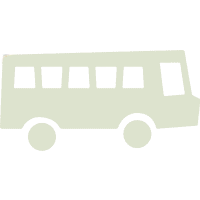The Loop Dallas is building a 50-mile circuit trail by the same name that will encircle the core of the city. By connecting 39 miles of existing trails in Dallas with 11 miles of newly built trails, The Loop Dallas will increase access to public transportation and green space, ensuring residents can access these resources across the city to commute, for recreation, and wellness.
A catalyst for mobility and economic opportunity, The Loop Dallas will make the city more vibrant and pedestrian-friendly, creating a sense of community and making abundant green space part of its identity. By bringing connections to more neighborhoods and creating a stronger, more united Dallas, The Loop Dallas’ urban trail system can be considered the single most important investment Dallas can make for its residents for generations to come.
In 2019, The Loop Dallas, a 501 (c) 3 formally partnered with the City of Dallas to lead efforts to complete four missing links needed for the 50-mile circuit. One of the projects, the Hi Line Connector, received $8 million in Congestion Mitigation and Air Quality Improvement (CMAQ) funds to overcome the physical barrier created by I-35E. In securing these funds, The Loop Dallas worked closely with its Metropolitan Planning Organization (MPO) and the Texas Department of Transportation (TxDOT) who administered the funds. The Loop Dallas used private philanthropic dollars to drive project management, design and other soft costs and navigate right of way challenges. In 2021, the CMAQ funding was supplemented with additional infrastructure funding from a tax increment financing district bringing the project hardcost total to $11.5 million. This signature project will unite the iconic placemaking of the Katy Trail with the burgeoning Design District in one of the most advanced active transportation projects in Texas.





